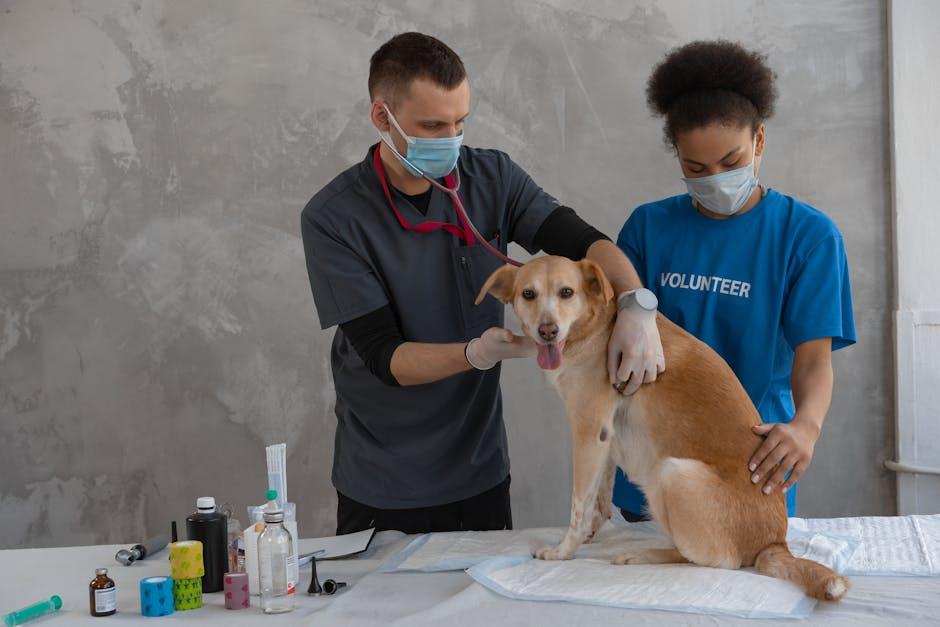Welcoming a new puppy into your home is a joyous occasion filled with wagging tails and endless cuddles. As a new pet owner, you are embarking on a rewarding journey that will bring boundless love and laughter into your life. However, along with the joy, comes the responsibility of ensuring your furry friend grows up healthy and happy. Understanding the basics of puppy health is crucial for nurturing a strong foundation that will support your pet’s well-being for years to come. In this guide, we’ll explore essential health advice tailored specifically for new puppy owners this year, offering practical tips and compassionate insights to help you navigate the early stages of your pup’s life with confidence and care. Whether you’re a first-time pet parent or adding another canine companion to your family, this article will equip you with the knowledge you need to give your puppy the best start possible.
Understanding Your Puppys Nutritional Needs for a Healthy Start
Ensuring your puppy has a strong foundation for lifelong health begins with understanding their dietary requirements. Just like human infants, puppies have unique nutritional needs that differ from adult dogs. A well-balanced diet supports their rapid growth, developing immune systems, and high energy levels.
When selecting food for your new furry friend, consider the following essential nutrients:
- Protein: Crucial for muscle development and overall growth. Look for high-quality animal-based proteins.
- Fats: Provide energy and help with brain development. Ensure they are sourced from healthy fats like fish oil.
- Vitamins and Minerals: Support bone development, immune function, and metabolic processes. Essential nutrients include calcium, phosphorus, and vitamin D.
- Carbohydrates: Offer a source of energy. Opt for whole grains and vegetables to ensure fiber intake.
Always consult your veterinarian to tailor a diet plan specific to your puppy’s breed, size, and health status. Remember, feeding your puppy is not just about meeting their immediate needs, but investing in their long-term health and happiness.

Essential Vaccinations and Preventative Care for Your New Furry Friend
Welcoming a new puppy into your home is an exciting time, and ensuring their health is a top priority. One of the first steps in safeguarding your furry friend’s well-being is to keep up with essential vaccinations. These vaccinations protect against serious diseases and contribute to a long, healthy life. Here’s a list of the core vaccines your puppy will need:
- Distemper: A highly contagious virus that affects a puppy’s respiratory, gastrointestinal, and nervous systems.
- Parvovirus: A potentially fatal disease causing severe vomiting and diarrhea.
- Adenovirus: Protects against infectious canine hepatitis.
- Rabies: A viral disease that is deadly to both animals and humans.
Alongside vaccinations, regular preventative care is vital. Schedule routine veterinary check-ups to monitor your puppy’s growth and address any health concerns early. Implement a flea and tick prevention plan, and ensure your pet is on a deworming schedule. These preventative measures not only protect your puppy but also create a healthy environment for your entire household.

Creating a Safe and Stimulating Environment for Your Growing Puppy
Welcoming a new puppy into your home is an exciting adventure, and creating an environment that is both safe and stimulating is essential for their development. Puppies are naturally curious and energetic, so it’s important to puppy-proof your home. Ensure that all electrical cords are tucked away and secure any loose wires. Store cleaning supplies and other hazardous materials out of reach, and be mindful of small objects that could be swallowed. Consider using baby gates to restrict access to certain areas, keeping your furry friend safe as they explore their new surroundings.
To stimulate your puppy’s mind and keep them entertained, provide a variety of toys and activities. A well-stocked toy box can prevent boredom and reduce the likelihood of destructive behavior. Include toys that cater to different play styles, such as:
- Chew toys to soothe teething gums
- Interactive puzzle toys to challenge their intelligence
- Fetch toys for active play sessions
In addition to toys, establish a daily routine that includes regular playtime, training sessions, and walks. This not only helps your puppy burn off energy but also strengthens the bond between you. Remember, a well-balanced environment contributes to a happy and healthy puppy, setting the foundation for a lifelong companionship.
















